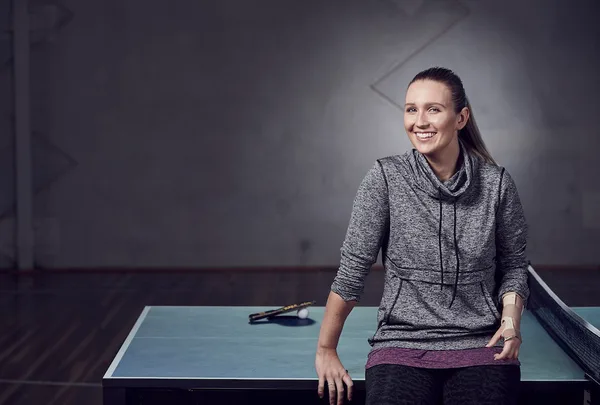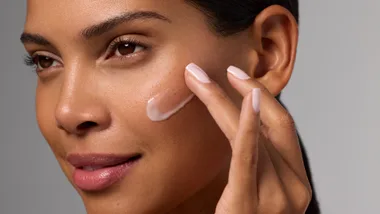“When I was born, I suffered nerve damage to my brachial plexus, which connects your spine to your neck and shoulder. Essentially it made my right arm a dead weight. After an operation at four months old I gained about 30 per cent use, but I’ve had to come up with my own way of doing most of the things that require both arms.
“I’ve figured out how to tie my shoelaces and use my hair straightener, but I can’t cut steak, so my husband does it for me. If we’re out, I get a few looks like, ‘Aren’t you spoilt?’ But they feel pretty bad when they see my arm!
“Growing up, I was never treated differently – there were no special snowflakes in our house, and I was expected to play sport like my siblings. In primary school, I played netball, basketball and did Little Athletics. I loved them all.
“When I was eight, Mum and Dad bought a table tennis table. Initially, I was hopeless, but I stuck with it. By the time I was 14, I made the Australian junior team competing against able-bodied kids. Because my right arm doesn’t have much strength it affects my balance, so I’ve had to adjust my game. But I can’t say if I have it harder than other athletes; it’s all I’ve ever known.
“Until I was 19 I competed against able-bodied athletes. It was then I moved out of the junior ranks into the seniors, where it was incredibly difficult to win. I was often getting fogged but I was so motivated because I really wanted to make it to the Olympics.
“Growing up, I was never treated differently. There were no special snowflakes in our house”
Melissa Tapper, Olympian
“I tried to qualify for the Olympic team three times and lost out [in 2004, 2008 and 2012]. It’s taken 16 years for me to get to the point of qualifying; the road is so much longer than you can imagine, with highs and lows. It’s heartbreaking when you miss out on making the team. It’s scary to think you could put so much work in and sacrifice so much and never realise your dream of simply getting to the Games.
“Back in 2009, when the Australian Paralympic Committee approached me about competing, I thought I’d give some disabled competitions a go. I completely fell in love with what the community stands for. I made the London Paralympic team in 2012 and just missed out on a medal. It made me hungry for more.
“I decided to try to qualify for both the Olympics and the Paralympics in 2016. This time, I didn’t leave anything to chance. Because I had just fallen short the other three times, I pushed myself as far as I could. When I qualified for both Games, I was over the moon. It’s hard to describe the relief, coupled with excitement and fear.
“I don’t let much faze me. I did feel self-conscious about my arm when I was younger, but now I know my disability has made me the person I am. I truly believe that no matter who you are, if you believe you can achieve something, then you can! Anything is possible.’’

 James Geer
James Geer









